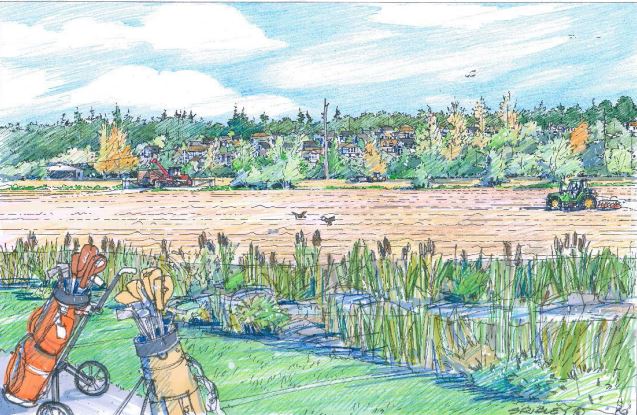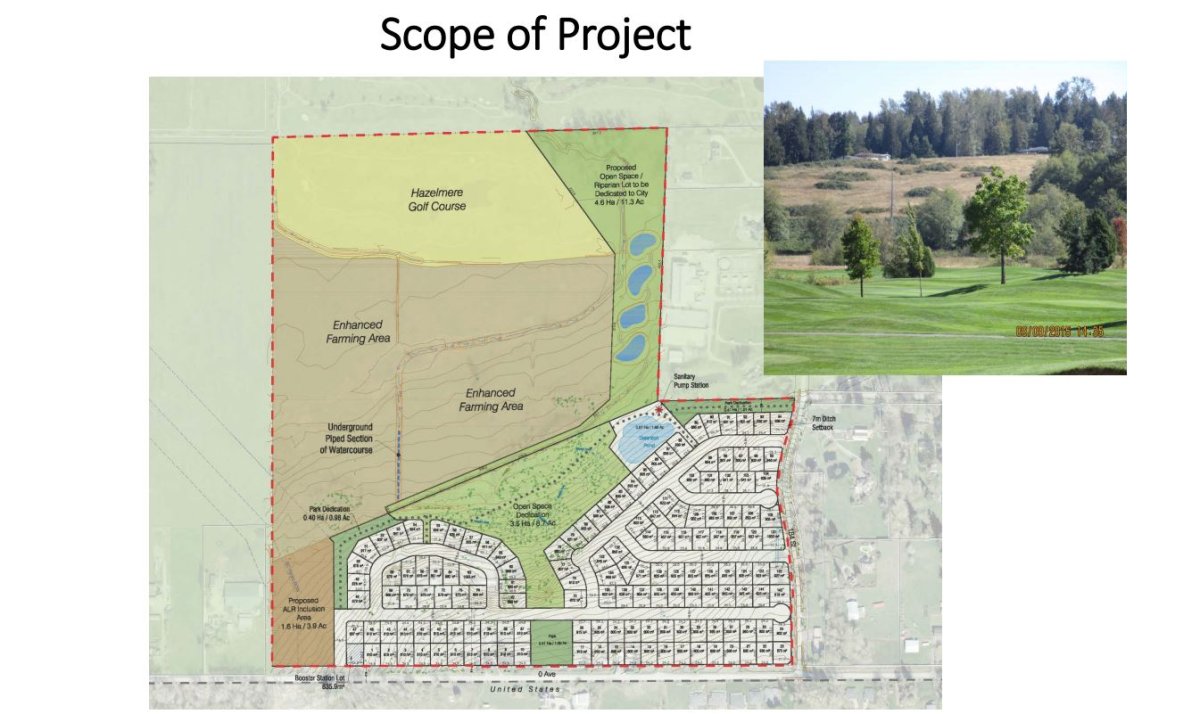A controversial housing development proposed for Surrey’s Hazelmere Golf Course has been scrapped.

The proposed development would have created a 145-lot, single-family subdivision, housing about 450 people.
The City of Surrey had given the development a green light, and asked the Metro Vancouver board to amend the regional land use designation for the 24-hectare site from “rural” to “general urban.”
In order to pass, the amendment needed two-thirds assent from Metro Vancouver’s directors. The regional board’s planning committee had recommended that directors decline Surrey’s request to move ahead with the project.
The meeting, which became heated at points, went behind closed doors briefly, as the board of directors struggled to come to an agreement on the proposed development.
Richmond councillor Harold Steves said significant opposition to the proposal emerged at a public hearing last week.
“I was impressed with the farmers that live in the area and all the residents that came to the public hearing. Without exception, the neighbours and farmers that live in this site are totally opposed,” he said.

Get breaking National news
Director Maria Harris called for a second public hearing, arguing that the board needs “to be fair to those people who wish to come forward,” while Surrey councillor Mike Starchuk called for the application to be referred back to Surrey.
Proponents argued that the development would have brought 18 hectares of Agricultural Land Reserve (ALR) land into production and created 9 hectares of preserved and reconstructed natural habitat, along with more than a hectare of Surrey park space.
The Semiahmoo First Nation had spoken in favour of the project, arguing that it had reached a mutual benefit agreement with the proponents and that it represented reconciliation through consultation and economic opportunity.
Opponents, including the group Friends of Hazelmere Campbell Valley, argued the development was outside Surrey’s Urban Containment Boundary and would have created new urban sprawl.
They further argued that it would have affected agricultural land negatively, and would violate the region’s sustainability goals, in part, because it would have no transit access.














Comments